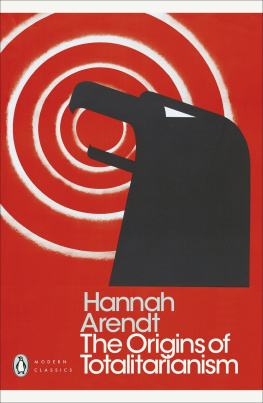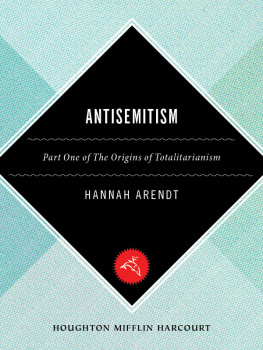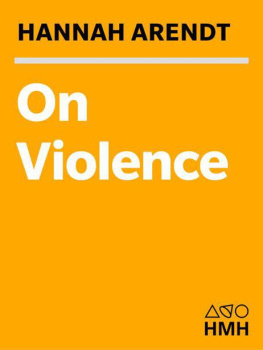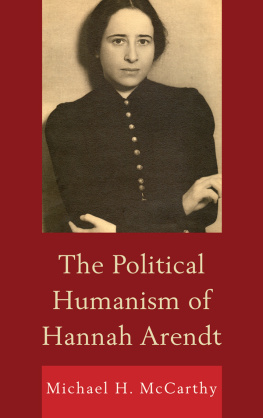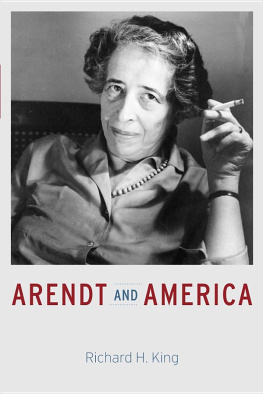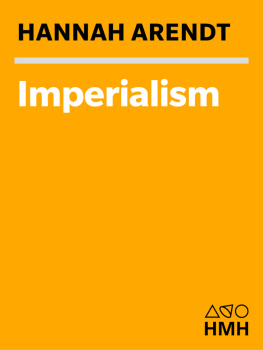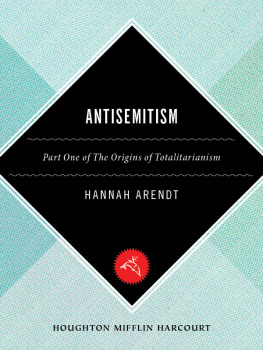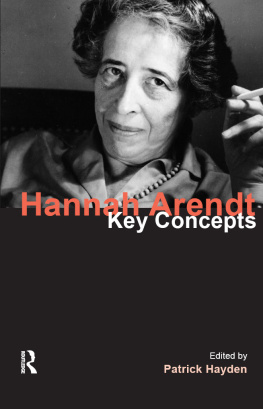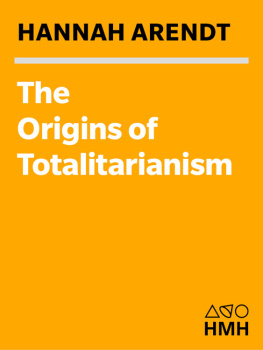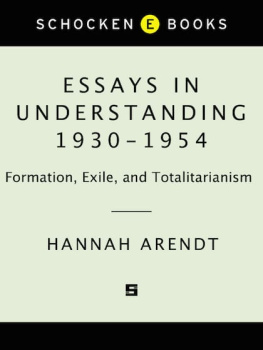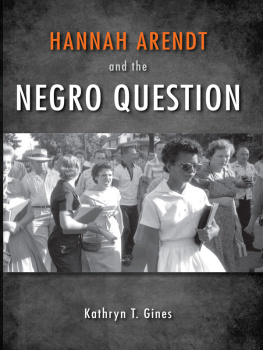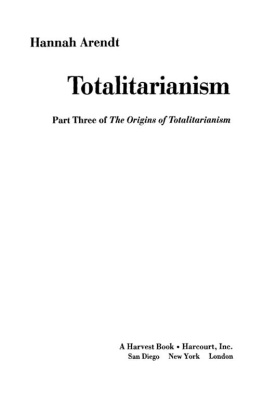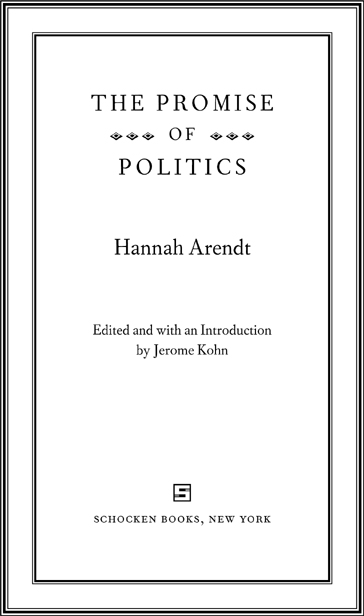INTRODUCTION
BY JEROME KOHN
Hannah Arendt did not write books to order, not even to her own order. For evidence, one need look no further than the contents of the present volume, whose principal sources are two books that Arendt planned in considerable and evolving detail in the 1950s, and then abandoned. The first project stemmed immediately from The Origins of Totalitarianism, published in 1951, and was to be called Totalitarian Elements in Marxism, indicating a matter she had not discussed in Origins. In the early 1950s, Arendt prepared a tremendous number of materialslectures, essays, addresses, and entries in her thought journaldealing not only with Marx but also, and increasingly, with his pivotal position within the great tradition of political and philosophic thought. Her principal insight, I believe, is that the tradition was consummated, and its authority shattered, when it returned to its source in Marx's thought. That meant two entirely different things to Arendt: it was the reason that Marxism could be used to inform a totalitarian ideology; but it also liberated Arendt's own thinking from the tradition, which became the real raison d'tre of this first projected book.
species, and to ignore, or in Marx's case misconstrue, the experience of political freedom that Arendt sees as action's greatest potential. Hence action, as Arendt came to understand it, is largely missing from the tradition of political and philosophic thought established and handed down by these thinkers. In this sense the second projected book is the continuation of the first.
The tradition's historical origin, development, and culmination are discussed in the first half of the present volume, while our traditional prejudices against politics in general and our prejudg-ments of political action in particular are addressed at the beginning of the second half. It should be noted that these prejudices and prejudgments, which bridge the book's two halves, are taken seriously by Arendt as originating in genuine philosophic experience. Moreover, in the modern world, with its unprecedented means of destruction, the danger that always lurks in the unpredictability of action has never been greater or more imminent. Wouldn't we be better off, for the sake of peace and life itself, to be rid of politics and political action altogether, and replace them with the mere administration of things, which is what Marx had foreseen as the final outcome of the proletarian revolution? Or, on the contrary, would that be a case of throwing out the baby with the bathwater? In the later sections of Introduction into Politics Arendt helps us answer those questions by clarifying the meaning of political experience. If human courage, dignity, and freedom are integral to that meaning, then we might decide that it is not politics per se but its prejudices and prejudgments that we should be free of. After so many centuries, however, such freedom probably can be attained only by judging afresh each new possibility of action the world presents. But by what standards? That difficult question brings the reader close to the core of Arendt's political thought.
Under totalitarian rule, as we know, people betrayed their families and killed their neighbors, not only in obedience to the dictates of their masters, but also in accordance with ideological laws governing the inevitable progress of human society. We may rightly say that these people acted without judgment, but the point is that in the light of the necessity of those higher laws of movement the very standards of family devotion and neighborly love appear as prejudices and prejudgments. Arendt came to understand that all rulesfor good or evil, and regardless of their sourcewhich purport to govern human action from without are apolitical and even anti-political. The depth of her appreciation of politics can be glimpsed in her contention that the only standards of judgment with any degree of dependability are in no sense handed down from above but emerge from human plurality, the condition of politics. Political judgment is not a matter of knowledge, pseudoknowledge, or speculative thought. It does not eliminate risk but affirms human freedom and the world that free people share with one another. Or rather, it establishes the reality of human freedom in a common world. The mental activity of judging politically embodies Arendt's response to the age-old split between two ways of life: the life of thinking and that of acting, philosophy and politics, with which our tradition of political thought began and in which our political prejudices and prejudgments are still rooted. The dichotomy between thinking and acting is characteristic of Arendt as it is of no other modern thinker, and though neither of the books she proposed writing in the 1950s was to be called The Promise of Politics, it is her emphasis on the human ability to judge that makes that title appropriate for this selection of the writings she prepared and did not destroy when the books themselves were laid aside.
That last sentence represents an immensely significant shift in Arendt's thinking from the unprecedented elements of totalitarianism to the world in the aftermath of World War II. There is no reason to doubt that what she proposed was already in her mind when she was writing Origins, nor that she had omitted it from that work for the reasons she states. Indeed, at the beginning of the chapter that in its second and all subsequent editions concludes Origins,
Arendt's way of understanding would be equally unorthodox, but in one crucial respect different, in the voyage on which she was about to embark. In turning to Marxism as the background of Bolshevik ideology, Arendt certainly did not mean that it had caused Bolshevism. But her notion of crystallization was no longer feasible, for in no sense could Marxism be thought of as subterranean. In Arendt's view, no justification of the crimes the Bolshevik dictators Lenin and especially Stalin committed in his name can be found in Marx. On the contrary, it was Marx's peculiar position in the mainstream of Western political thought that allowed her to judge the tradition, which she did by telling the stories of those who handed it down, and of those who stood their ground against it, or tried to. At the risk of repeating myself, it cannot be overemphasized that Arendt's point is not that totalitarianism issued directly from the tradition or from Marx, but that, as she said (in the same letter to H. A. Moe cited above), in Marx's thought, the tradition itself had found its end, had done so much as a serpent can be imagined coiling about and devouring itself. That Marxism broke the authority of the tradition was at most a negative condition of Bolshevik totalitarianism. That neither the tradition nor its authority could be restored in the post-totalitarian world was decisive for Arendt.


